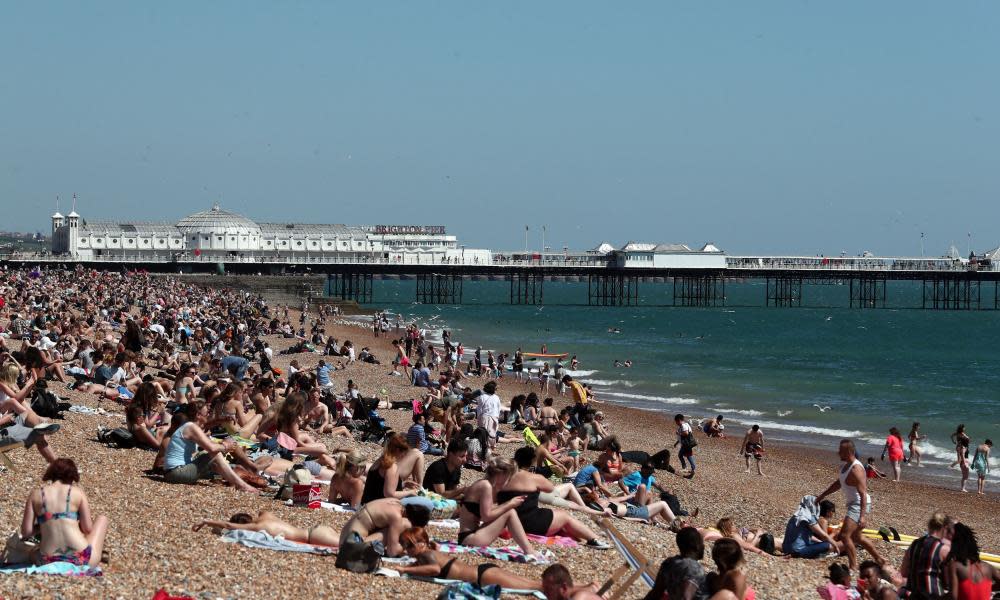Let’s keep our water safe and free to drink | Letters

This weekend Brits will flock to our beaches. Thanks to EU pressure, visitors to more than 95% of our bathing beaches can paddle safe in the knowledge that nothing nasty lurks beneath the waves – a massive improvement since 1987, when it was judged safe to enter the water at just 55% of our favourite swimming spots. However, the European Environment Agency is right to raise a red flag (UK bathing water ranks next from last in EU beach table, 23 May). The UK continued to pump gallons of untreated effluent into some of our most beautiful seaside areas every year right up until 1998. Even today, only 65% of our beaches are rated as excellent by the Environment Agency, compared with 91% in Italy and 89% in Spain. And these are at risk if EU standards which guarantee clean bathing water are weakened or abandoned after Brexit.
No one wants to see Britain return to being seen as the dirty man of Europe. Let’s ensure this election doesn’t mark the end of our summer holidays by the sea and ask that all political parties commit to retaining EU bathing standards and ensure our future is safe from sewage.
Kierra Box
Land, food and water campaigner, Friends of the Earth
• People no longer need to feel embarrassed when asking for their water bottle to be refilled for free (Report, 11 May). The Refill scheme, which started in Bristol, is spreading. A group I belong to is asking businesses in Bradford on Avon in Wiltshire to put a blue water drop Refill sticker in their windows if they are willing to fill water bottles for free. Nearly all the places have been pleased to join the scheme which aims to reduce the number of single-use water bottles bought and then thrown away. Nearly half the 35m plastic bottles that are used in the UK every day are not recycled. Even if the bottles are recycled there is still a cost in energy to transport and recycle them. Plastic bottles often end up littering our streets and then polluting our rivers and seas. The businesses that join Refill are put on an app so tourists, cyclists and walkers can quickly see where they can get their bottles refilled with a smile.
Maureen Wood
Bradford on Avon, Wiltshire
• If someone has to buy a drink, the chances are they will choose a sweetened drink rather than water. Sweetened drinks contribute to common health problems, including decayed teeth, obesity and type 2 diabetes. There should be provision of free mains drinking water on town centre streets, in public libraries, at bus and railway stations, and other public places.
Margaret Cliff
Leeds
• Join the debate – email guardian.letters@theguardian.com
• Read more Guardian letters – click here to visit gu.com/letters

 Yahoo News
Yahoo News 
